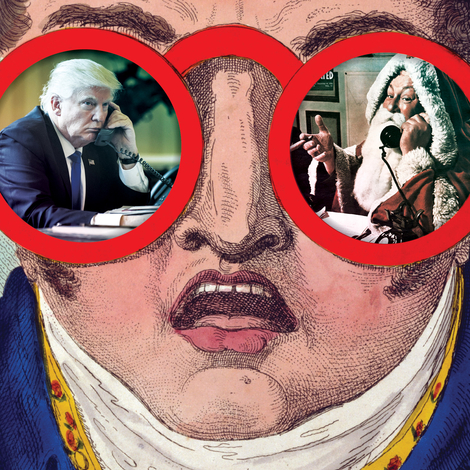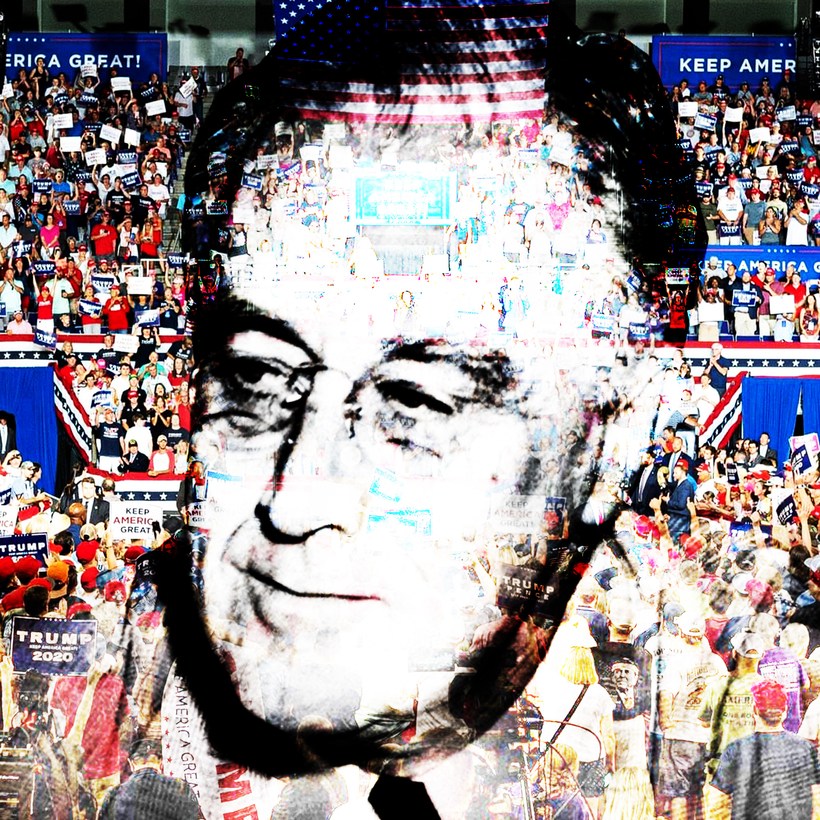History may record March 7, 2024, as the last good night of Joe Biden’s political career. That was when the president came to the House chamber to deliver a combative and surprisingly lively State of the Union address that, for a brief moment, allayed the doubts about his age and ability that would ultimately sink his candidacy.
Biden began his speech that night by speaking, as he often does, of Franklin Roosevelt. In January 1941, Biden told his audience, Roosevelt, too, had come to the Capitol to deliver a State of the Union—an urgent message about Hitler’s threat to democracy and global peace known to history as the Four Freedoms speech.
“President Roosevelt’s purpose was to wake up the Congress and alert the American people that this was no ordinary moment,” Biden said. “Now it is we who face an unprecedented moment in the history of the Union.... Freedom and democracy are under attack, both at home and overseas, at the very same time.”
That was the fight Biden wanted: a crusade for democracy straight out of the 1940s, with Vladimir Putin as the Fascist dictator menacing Europe and Donald Trump as an appeaser and would-be authoritarian in the mold of Charles Lindbergh. Biden would be Roosevelt, saving America, Europe, and the world.
That was the re-election campaign he’ll never get.
Now the candidates have shifted and so have the vibes, the speeches of F.D.R. swapped for the stylings of pop star Charli XCX. But beneath the joyful laughter of the Democrats’ Brat summer, the grim echoes of World War II remain. The contemporary resonance of Roosevelt’s struggle against despots abroad and dictators at home was always greater than the words of Biden. It may even prove bigger than the persistent menace of Trump.
Two astute and engrossing new books, each written by an eminent Roosevelt chronicler, show why. It is perhaps not an accident that both H. W. Brands, the author of the Pulitzer Prize–nominated Roosevelt biography Traitor to His Class, and Paul M. Sparrow, the former director of the Franklin D. Roosevelt Presidential Library and Museum, have published books this year on Roosevelt’s clash with the isolationist Lindbergh. Both seem tailored for the Biden-Trump campaign that wasn’t.
Sparrow’s title, Awakening the Spirit of America, echoes Biden’s stump speech’s appeals to “the soul of America”—a phrase that appears frequently in Sparrow’s text. Brands, meanwhile, calls his book America First, a phrase so associated with Lindbergh’s anti-Semitism it had largely vanished from polite politics until Trump shamelessly made it his own.
The implicit promise is that readers will find plenty of Trump in the authoritarian-curious Lindbergh. By the late 1930s, he was no longer “Lucky Lindy,” the sun-dappled hero whose 1927 Atlantic air crossing had made him the most celebrated man of the age. Embittered toward the press, whom he blamed for the 1932 murder of his 20-month-old son, he was possessed by conspiratorial hatred of Jews and an unshakable pessimism about his own country’s chances in a conflict with Germany, whose leader, Adolf Hitler, he believed had “done much for the German people.”

After the outbreak of war in September 1939, Lindbergh became the most prominent critic of Roosevelt’s clever, conflicted foreign policy—nominally neutral but sympathetic with the European democracies staring down Nazi aggression. In the two years before the Pearl Harbor attack, Lindbergh gave numerous radio addresses and led large, public rallies for the America First movement.
Lindbergh’s worldview held that any American foreign policy that concerned itself with questions of liberty or human rights was dangerously sentimental and hypocritical. Two weeks after Roosevelt made the case for aiding Europe’s democracies in the Four Freedoms speech, Lindbergh appeared before a congressional committee. Asked to pick a side—England or Germany—whose victory in the war would best serve America’s interests, he gave a one-word answer: “Neither.”
The mirthless aviator shared little in common with the president he persecuted, save for mutual contempt. “I am far from being sure that Roosevelt would not sacrifice this country in war if it were to his own personal interest,” Lindbergh wrote in his diary.
Both books seem tailored for the Biden-Trump campaign that wasn’t.
“If I should die tomorrow, I want you to know this,” Roosevelt said to his friend Henry Morgenthau after one of the aviator’s radio addresses. “I am absolutely convinced that Lindbergh is a Nazi.”
But Roosevelt, who always took great care in selecting public foils, knew that Lindbergh’s star power meant attacking him directly would only elevate the isolationist cause. Instead, he used his powers of verbal precision to implicitly rebuke the aviator. Sparrow convincingly highlights a March 1940 address on the “moral basis for peace” as a response to Lindbergh: “It cannot be a real peace if it fails to recognize brotherhood. It cannot be a lasting peace if the fruit of it is oppression, or starvation, or cruelty, or human life dominated by armed camps.”
Both Brands and Sparrow dwell at length on the crafting of Roosevelt’s public oratory in the pre-war period, a process where the president held striking command. Brands’s account of the drafting of the January 1941 State of the Union speech is wonderful, with Roosevelt leaning back in a swivel chair and dictating a flawless paragraph-length description of the four freedoms. “The words,” his adviser Sam Rosenman later recalled, “seemed … to roll off his tongue as though he had rehearsed them many times to himself.”
These are not the sorts of stories one hears about Biden. I was reading both of these books as Biden’s candidacy was collapsing this summer and was struck by how poorly cast he has always been as a Rooseveltian champion of democracy. His principled leadership in support of Ukraine has been wise and often heroic. But he is perhaps the least adept communicator to inhabit the White House in a century. He wanted an F.D.R.-size presidency while lacking F.D.R.-size skills.
Does Kamala Harris have them? It’s far too soon to tell, but the earliest signs are encouraging. In her impressive speech accepting the Democratic nomination for the presidency, Harris seemed especially animated in the section discussing America’s role in the world. “I will never waver in defense of America’s security and ideals, because in the enduring struggle between democracy and tyranny, I know where I stand and I know where the United States belongs.” Somewhere, Lindbergh’s ghost was sulking. Roosevelt’s tenacious vision—America, beacon of liberty—may yet live to fight another day.
Jonathan Darman is the author of Landslide: LBJ and Ronald Reagan at the Dawn of a New America and Becoming FDR: The Personal Crisis That Made a President


